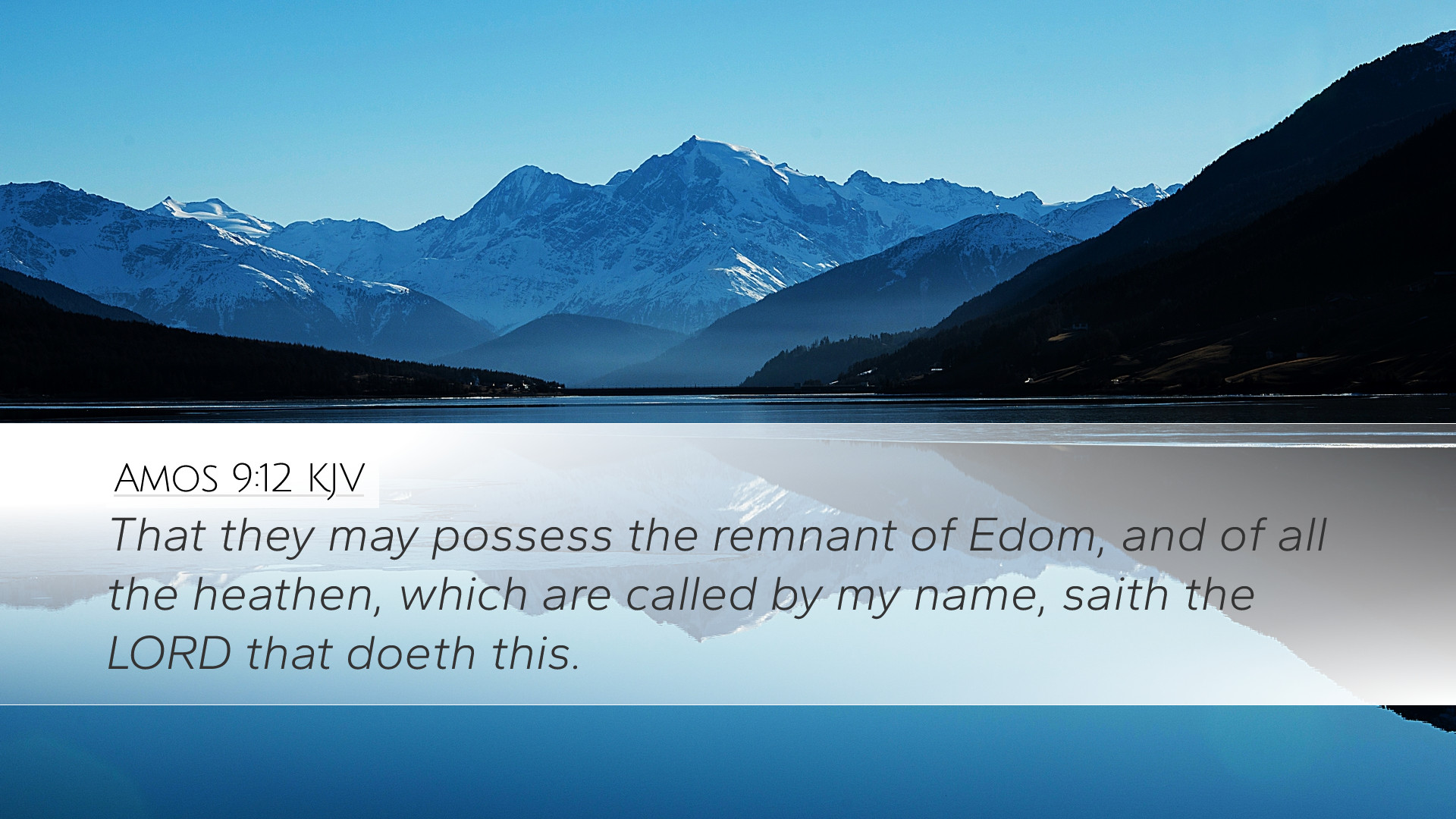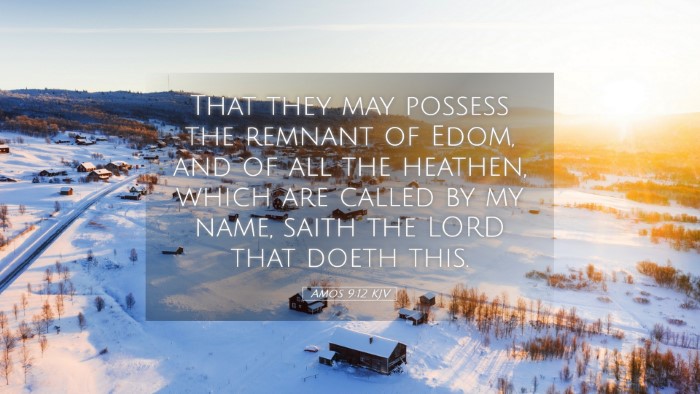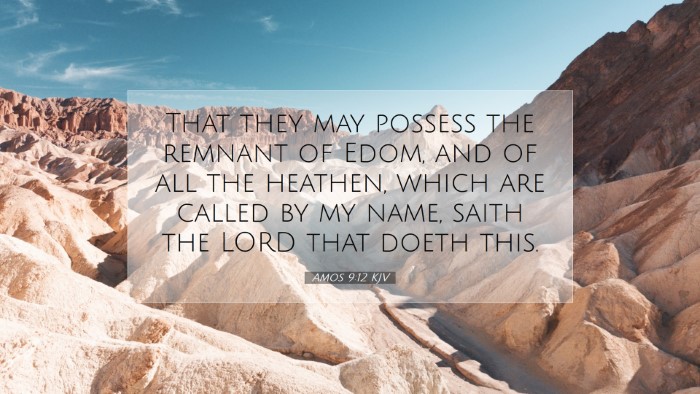Old Testament
Genesis Exodus Leviticus Numbers Deuteronomy Joshua Judges Ruth 1 Samuel 2 Samuel 1 Kings 2 Kings 1 Chronicles 2 Chronicles Ezra Nehemiah Esther Job Psalms Proverbs Ecclesiastes Song of Solomon Isaiah Jeremiah Lamentations Ezekiel Daniel Hosea Joel Amos Obadiah Jonah Micah Nahum Habakkuk Zephaniah Haggai Zechariah MalachiAmos 9:12
Amos 9:12 KJV
That they may possess the remnant of Edom, and of all the heathen, which are called by my name, saith the LORD that doeth this.
Amos 9:12 Bible Commentary
Amos 9:12 Commentary
Amos 9:12 reads: "That they may possess the remnant of Edom, and of all the heathen, which are called by my name, saith the Lord that doeth this."
Contextual Overview
The book of Amos is a powerful prophetic work that addresses the social injustices, spiritual decay, and impending judgment upon Israel. In this concluding chapter, Amos shifts towards hope and restoration. The final verses present a vision of renewal where God's people will be restored and expanded to embrace not only Israel but also the Gentiles.
Exegetical Insights
This verse implies a future where Israel will inherit the lands that once belonged to Edom and other nations. The mention of "the remnant of Edom" suggests that God's plans encompass not just judgment but the possibility of redemption and reconciliation.
Albert Barnes' Commentary
Albert Barnes emphasizes that the "remnant of Edom" symbolizes not just territorial possession but also a larger spiritual truth: the gathering of all nations under the Lord’s sovereignty. Barnes points out that this speaks to the universal reach of God's grace, which extends beyond Israel to touch the hearts of the Gentiles.
Matthew Henry's Commentary
Matthew Henry highlights the profound implications of this verse in light of God’s covenant promises. He notes that the remnant signifies God's preservation of a faithful people amidst judgment. Henry interprets the phrase "which are called by my name" as indicating that the Gentiles will be adopted into God's family, a theme that fulfills the broader biblical narrative of inclusion.
Adam Clarke's Commentary
Adam Clarke delves into the historical significance of Edom, a nation that often stood in opposition to Israel. He points out that this prophecy of possessing Edom ultimately foreshadows the greater triumph of the Christian church over all opposition. Clarke sees this as a pivotal moment where God's enemies are turned into His allies, an echo of the New Testament's message of reconciliation through Christ.
Theological Implications
- Covenant Fulfillment: The verse illustrates God’s fidelity to His covenants, showcasing how His plans remain steadfast despite human failure. The inclusion of the Gentiles reflects the fulfillment of God’s promises to bless all nations.
- Hope and Restoration: It serves as a reminder that even in the midst of judgment, God holds out hope for restoration and transformation. This is particularly relevant for pastors and theologians in discussing God’s redemptive nature.
- Universal Call: The concept of being “called by my name” emphasizes God’s initiative in salvation, affirming that His grace is not confined to Israel but extends to all who believe.
Practical Applications
This verse encourages believers to recognize the vastness of God’s mercy and the call to reach out to others. It challenges the church to embrace its role as a vessel of God's grace to all nations, fostering a spirit of inclusivity.
For Pastors
Pastors are called to preach a message of hope and reconciliation, emphasizing that no one is outside of God’s reach. The call to possess the remnants should inspire them to look for opportunities to engage with those who are marginalized or outside the traditional community of faith.
For Theologians and Scholars
Theologians are encouraged to explore the implications of God's promise of inheritance and identity, particularly in light of Christ's work. This verse is ripe for discussion on eschatology and the inclusive nature of salvation.
Conclusion
Amos 9:12 encapsulates a profound theological truth regarding the nature of God’s kingdom—a kingdom that transcends ethnic and national boundaries. It invites believers into a transformative journey of faith, embodying the hope that God’s redemptive plan encompasses all of humanity, inviting them into the fold of His love.


